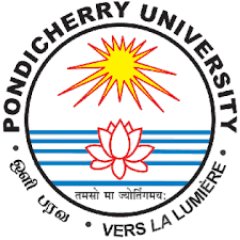Pondicherry Univ. VC Prof. Prakash Babu Highlights Psychology Role in Education
Prof. Babu urged the international gathering to act as a collaborative forum, combining neuroscience, psychology, and education to create strategies that improve student well-being worldwide.

- Country:
- India
The 8th Asia Pacific School Psychology Association (APSPA) International Conference on Advancement of School Psychology in the Asia Pacific Region opened at Tokyo University, Oji campus, Japan, bringing together educators, psychologists, policymakers, and researchers from across the globe. The highlight of the inaugural session was the keynote address by Prof. P. Prakash Babu, Vice Chancellor of Pondicherry University and a pioneering neuroscientist.
Social and Emotional Health Linked to Neuroscience
In his keynote, Prof. Babu stressed that social and emotional challenges are deeply interconnected with neural synapses, underlining the importance of understanding mental health through the lens of neuroscience. He suggested meaningful ways to strengthen the role of school psychologists, positioning them as key contributors in addressing students’ psychological well-being.
He also offered practical strategies for building resilience and promoting mental health, including classroom-based activities, counselling initiatives, and peer-support models. His remarks left participants with thought-provoking insights on how school psychology can evolve into a stronger pillar of modern education.
Bridging Global Best Practices and India’s NEP 2020
Prof. Babu reflected on his post-doctoral research in Japan, recalling his experiences of working alongside global experts and observing the country’s strong commitment to educational and psychological research. He connected these experiences with India’s National Education Policy (NEP) 2020, which, he said, places a special emphasis on psychology, counselling, and holistic well-being.
He highlighted that NEP 2020 goes beyond academic learning, focusing on nurturing emotional resilience, adaptability, and social competence among students. According to him, this vision redefines education by making mental health and counselling integral to school systems, a priority shared by many countries in the Asia-Pacific region.
Inspiring Collaborative Approaches
Prof. Babu urged the international gathering to act as a collaborative forum, combining neuroscience, psychology, and education to create strategies that improve student well-being worldwide. He emphasized that school psychologists are crucial change agents, capable of fostering inclusivity, managing stress, and preparing children for a dynamic future.
His keynote served as a bridge between international best practices and India’s visionary reforms, encouraging participants to learn, adapt, and implement ideas across borders to build stronger school psychology frameworks.
Leaders and Dignitaries at the Conference
The conference began with a welcome address by Prof. Panch Ramalingam, Conference Chairman and International President of APSPA. Prof. L. M. Lopez, Chairman of Tokyo University of Social Welfare, presented the scope and objectives of the conference. Prof. Jiro Sakai, President of Tokyo University of Social Welfare, released the 8th APSPA Conference Book of Abstracts.
The inaugural session also featured a special address by Shri Sibi George, Ambassador of India to Japan, who emphasized the growing India–Japan collaboration in education and research.
A Global Call for Student Well-Being
The APSPA conference this year served as an important platform for policy discussions, academic exchanges, and collaborative initiatives in school psychology. With mental health challenges on the rise globally, the event highlighted the urgent need for evidence-based interventions and the integration of mental well-being into mainstream education systems.
Prof. Babu’s keynote not only showcased India’s progress in linking neuroscience with education but also inspired international participants to collectively reimagine school psychology as a cornerstone of 21st-century learning.










